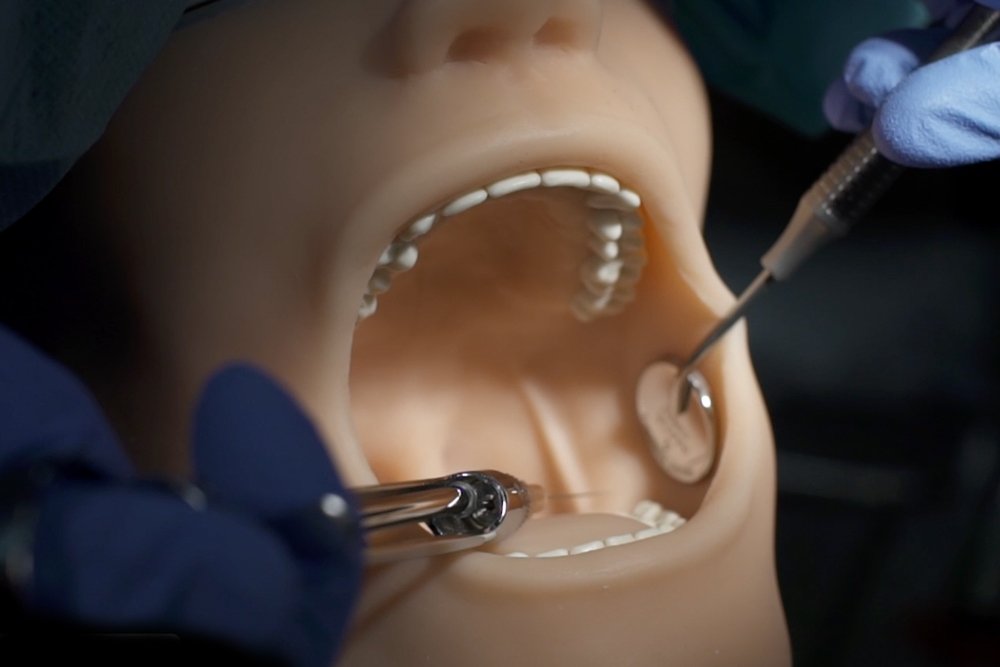|
One Dental Pty Ltd |

|
|---|
How can you continue to learn dentistry at home?
April 29, 2021
How can you continue to learn dentistry at home?
Dentistry is a life-long learning commitment, there's little doubt about that.
To thrive in this industry, you're required to learn new skills on a regular basis.
Even dental professional who've been practising for years often attend workshops and conferences to keep up with evolving technologies and clinical standards.
After all, dentistry is a profession that demands precision, dexterity, patience and adaptation.
Passion too!
What’s the best way to build these skills?
There’s no replacement for interacting with your peers and tutors on-campus, if you have this option.
Having said this:
The most successful students also put in extra hours to refine their skills at home.
They understand that practise makes perfect when doing tasks that require exceptional hand-eye coordination (such as crown preps and endodontics).
This is particularly important if you’re studying, but also applies to practising dentists.
It’s a good idea to incorporate some home study into your schedule, even at the best of times. However, this is now the main (or only) option for many dental students – as facilities around the world shut their doors or reduce hours in response to the COVID-19 pandemic.
Australians have been lucky to avoid this reality for the most part, but dental students can still benefit from practising their skills on dental models at home, to enhance what they’ve learnt on campus, or at a workshop.
Why is this approach so effective?
When you’re studying dentistry, it’s easy to feel left behind your peers due to the fast-paced nature of the course. It’s essential to master the basic techniques before you can assist patients, but there’s a lot of pressure in a class setting.
If you practise on a dental manikin in the comfort of your own home, you’re likely to feel relaxed and less self-conscious about making mistakes (which is the best way to learn). The more you practise, the better your hand-eye coordination and attention to detail!
As for experienced dentists, it can be hard to find time away from patients to perfect newly acquired skills. Sometimes you have little choice but to spend a little time experimenting on dental models after-hours.
- Practise carving on wax blocks – starting with simple shapes, then moving to the lower incisors. After you’ve mastered this, progress to the upper incisors, canine, premolars and molars. This is particularly helpful for first year students, as carving is an essential basic skill that sets the stage for your dentistry career.
- A DentaPrac Look, cut, measure and calibrate. These are ideal for improving your manual dexterity. You receive feedback through the handpiece as you enter each layers density – just like a natural tooth.
- Purchase a dental simulation unit for your home and practise dental procedures (such as root canals) on the models over and over, until you feel confident.
- Familiarise yourself with the 3D feature on Google Maps, to prepare your brain for looking at items from a different perspective. Many dental practises are embracing 3D technology, so it’s useful to get comfortable with seeing objects in 3D.
- Take on a hobby that improves your fine motor skills, such as drawing, painting, pottery or learning an instrument (guitar, piano, flute or violin are great options).
Looking for quality dental products? We’re here to help!
One Dental is a family business that’s 100% Australian-owned. We import, manufacture and distribute hundreds of clinically proven dental products to universities, teaching institutions, hospitals, dealers and others in the profession.
Our experienced team has been trained in the dental industry, so we can offer support and training for our products.
One Dental also created the first dedicated dental vending machine to assist students and patients – by supplying quality essentials in one location that’s easy to quickly access.
Contact us on +61 2 9634 3443 or fill out this form for more information.


